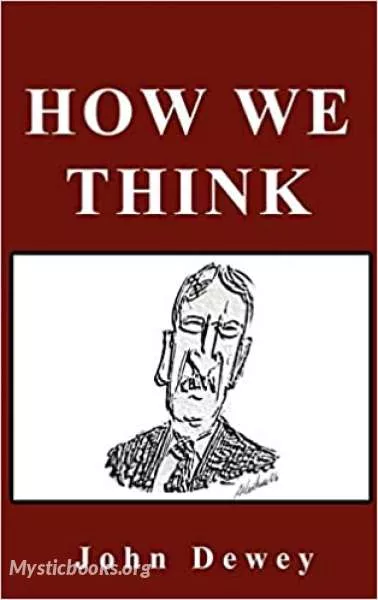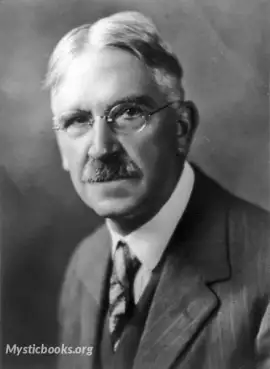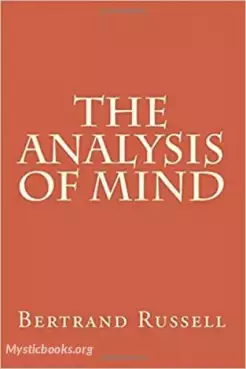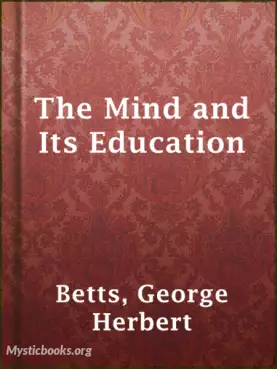
How We Think
by John Dewey
'How We Think' Summary
How We Think is an account of logical reasoning and its importance.
John Dewey was born in 1859 and died in 1952 and was one of the founders of the philosophical movement known as pragmatism. He wrote the book, “How We Think”, that concludes that we can be taught to think well, but not the process. He tells us that thinking is automatic, like breathing and our heartbeats.
Dewey tells us that our knowledge is what we are aware of, and that how we consider those things are beliefs. He tells us that beliefs have consequences, and that knowledge is relative to its interaction with the world.
He says that, “Genuine freedom is intellectual; it rests in the trained power of thought, in the ability to turn things over and to look at matters deliberately”. Thinking is more important than what is being thought about. “If a man’s actions are not guided by thoughtful conclusions, then they are guided by inconsiderate impulse.”
He tells us that thinking is the act of believing and offers an example: “I think that it is going to rain tomorrow’ is equivalent to saying, ‘I believe that it is going to rain tomorrow."
Dewey tells us that the thinking process begins with a dilemma that suggests alternatives, indicating that thinking is evoked by confusion. He adds that schools do not need to teach information but should encourage stimulus that challenges external reality. The goal is to create curious and questioning minds that see wonder in science and philosophy, rather than monotony and routine in school.
Thinking doesn’t just happen, but it is evoked by something specific. Experience is a point of reference for the imagination. The mind reflects by looking for additional evidence to compare with new experiences. Good and bad thinking in some cases can be in effected by the amount of experience or prior knowledge.
-Summary By Brent M. Jones
Book Details
Language
EnglishOriginal Language
EnglishPublished In
1910Authors

John Dewey
United States
John Dewey was an American philosopher, psychologist, and educational reformer whose ideas have been influential in education and social reform. He was one of the most prominent American scholars in t...
Books by John DeweyDownload eBooks
Listen/Download Audiobook
- Select Speed
Related books

He Can Who Thinks He Can by Orison Swett Marden
Do you have what it takes to be the person you want to be? This is a neat self help book in plain English by the New Thought Movement author Orison Sw...

The Consoling Thoughts of Saint Francis de Sales by Saint Francis de Sales
Francis de Sales (1567-1622) was a French priest and later bishop of Geneva who was revered as a master of spiritual direction and fondly remembered f...

Your Psychic Powers and How to Develop Them by Hereward Carrington
Instructions in how to develop your psychic powers including telepathy, clairvoyance, self-projection, reincarnation, and other topics. Seriously. "It...

A Series of Lessons in Raja Yoga by William Walker Atkinson, Theron Q. Dumont
The Book talks on the internal world of the self. The real nature of the subconscious mind, the way to control it, how ego comes into play and most fr...

Psychological Warfare by Cordwainer Smith
Psychological warfare and propaganda have been used extensively in warfare since the earliest times. This book explores the functions, limitations, ty...

The Analysis of Mind by Bertrand Russell
A neat work on philosophy of mind by the 20th century analytic philosopher Bertrand Russell.

Psychotherapy by Hugo Munsterberg
Talking about viewing the Ocean "If I take the attitude of appreciation, it would be absurd to say that this wave is composed of chemical elements whi...

Dynamic Thought; Or, The Law of Vibrant Energy by William Walker Atkinson, Theron Q. Dumont
Harness the power of your thoughts to create the life you desire. Dynamic Thought; Or, The Law of Vibrant Energy is a classic guide to the power of t...

Heilige Weten by Louis Couperus
In 'Heilige Weten', the final installment of Couperus's 'Boeken der Kleine Zielen' cycle, the story shifts focus to Addy, now a doctor and head of a s...

The Mind And Its Education by George Herbert Betts
Betts describes consciousness as a process or a stream that begins in the cradle with the baby’s first groping for light and so at the end with the la...
Reviews for How We Think
No reviews posted or approved, yet...